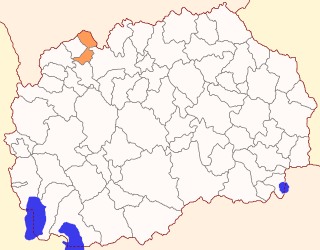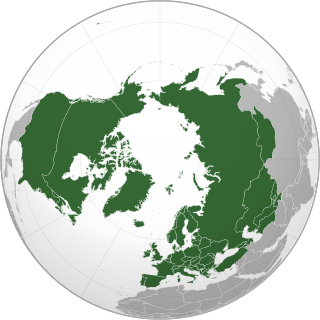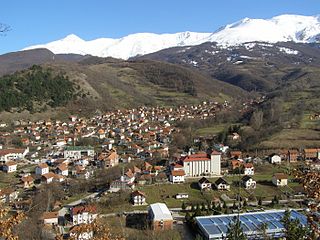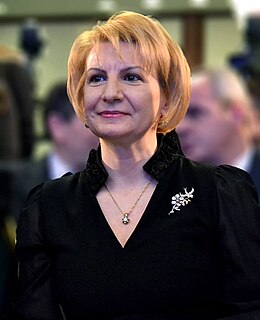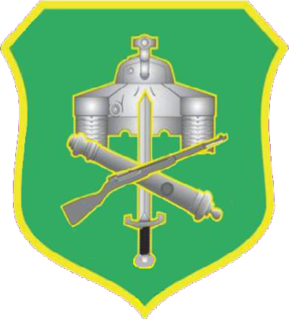Nansen Dialogue Centre Skopje is an NGO based in Skopje Macedonia which was founded in 2000. It won the 2011 Max van der Stoel Award from the Netherlands and OSCE High Commissioner on National Minorities. [1] Its mission is to support intercultural and interethnic dialogue processes with the aim of contributing to conflict prevention, reconciliation and peace building through program activities, in particular in education.

Skopje is the capital and largest city of North Macedonia. It is the country's political, cultural, economic, and academic center.

Maximilianus "Max" van der Stoel was a Dutch politician and diplomat of the Labour Party. On 17 May 1991, he was granted the honorary title of Minister of State.

The Netherlands is a country located mainly in Northwestern Europe. The European portion of the Netherlands consists of twelve separate provinces that border Germany to the east, Belgium to the south, and the North Sea to the northwest, with maritime borders in the North Sea with Belgium, Germany and the United Kingdom. Together with three island territories in the Caribbean Sea—Bonaire, Sint Eustatius and Saba— it forms a constituent country of the Kingdom of the Netherlands. The official language is Dutch, but a secondary official language in the province of Friesland is West Frisian.
Contents
Nansen Dialogue Center Skopje is a local non-governmental and non-profit organization, established in 2000 supported by the Nansen Academy from Lillehammer, Norway. NDC Skopje is part of the Nansen Dialogue Network that consists of Nansen Dialogue Centers in the Western Balkans and the Nansen Academy in Norway. Nansen Dialogue Network is a member of the European Peace Building Liaison Office.

Non-governmental organizations, nongovernmental organizations, or nongovernment organizations, commonly referred to as NGOs, are usually non-profit and sometimes international organizations independent of governments and international governmental organizations that are active in humanitarian, educational, health care, public policy, social, human rights, environmental, and other areas to effect changes according to their objectives. They are thus a subgroup of all organizations founded by citizens, which include clubs and other associations that provide services, benefits, and premises only to members. Sometimes the term is used as a synonym of "civil society organization" to refer to any association founded by citizens, but this is not how the term is normally used in the media or everyday language, as recorded by major dictionaries. The explanation of the term by NGO.org is ambivalent. It first says an NGO is any non-profit, voluntary citizens' group which is organized on a local, national or international level, but then goes on to restrict the meaning in the sense used by most English speakers and the media: Task-oriented and driven by people with a common interest, NGOs perform a variety of service and humanitarian functions, bring citizen concerns to Governments, advocate and monitor policies and encourage political participation through provision of information.

Lillehammer is a town and municipality in Oppland county, Norway. It is part of the traditional region of Gudbrandsdal. The administrative centre of the municipality is the town of Lillehammer. As of 2018, the population of the town of Lillehammer was 28 034. The city centre is a late nineteenth-century concentration of wooden houses, which enjoys a picturesque location overlooking the northern part of lake Mjøsa and the river Lågen, surrounded by mountains. Lillehammer hosted the 1994 Winter Olympics and 2016 Winter Youth Olympics. Before Oslo's withdrawal from consideration, it was included as part of a bid to host events in the 2022 Winter Olympics if Oslo were to win the rights to hold the Games.

Norway, officially the Kingdom of Norway, is a Nordic country in Northern Europe whose territory comprises the western and northernmost portion of the Scandinavian Peninsula; the remote island of Jan Mayen and the archipelago of Svalbard are also part of the Kingdom of Norway. The Antarctic Peter I Island and the sub-Antarctic Bouvet Island are dependent territories and thus not considered part of the kingdom. Norway also lays claim to a section of Antarctica known as Queen Maud Land.

